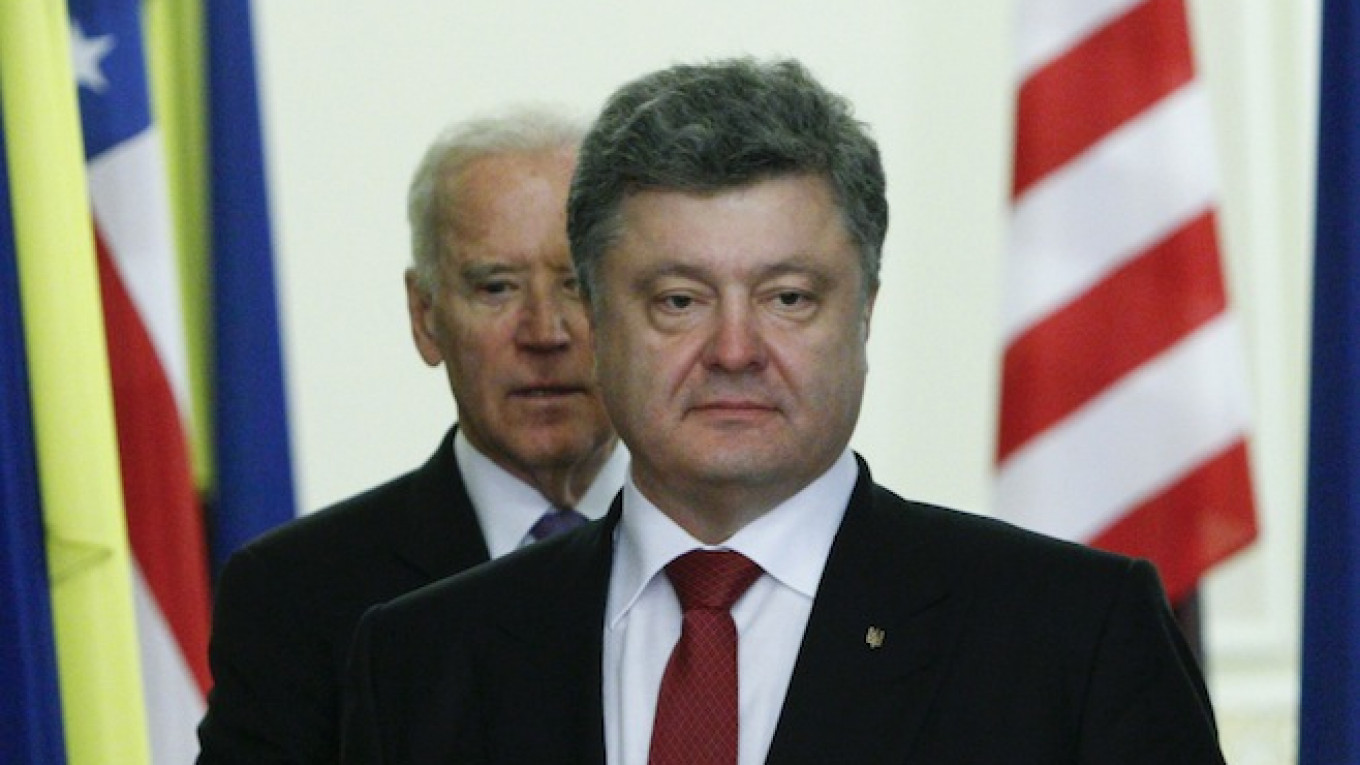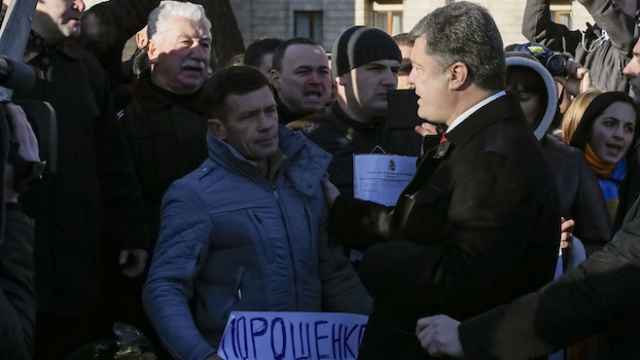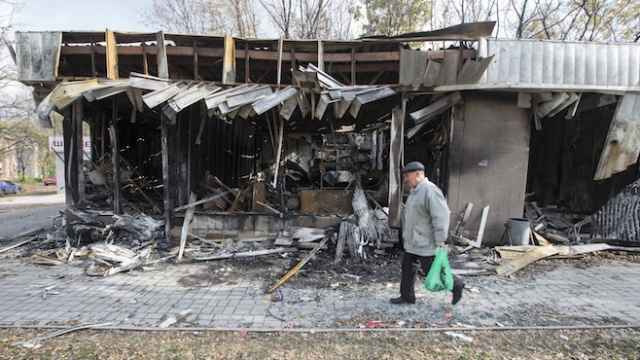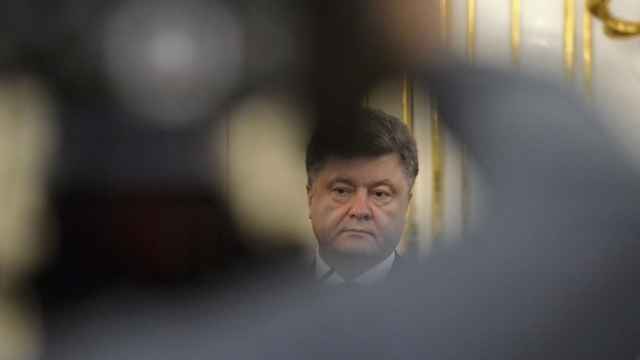KIEV — Lithuania is to provide Ukraine with some military aid to help in its fight against pro-Russian separatists in the east of the country, Ukrainian President Petro Poroshenko said Monday.
It was not clear, however, if Lithuania was following fellow NATO member the U.S. in providing nonlethal military equipment, or supplying weaponry. NATO countries are reluctant to risk being drawn into conflict with Russia by arming a nonmember.
"We have agreed on supplies of concrete elements of concrete armaments for the Ukrainian armed forces," Poroshenko said after talks with Lithuanian President Dalia Grybauskaite.
"This is real help," he told a joint news conference.
Pressed for details, Grybauskaite said only: "Ukraine will receive all the support available for Lithuania and what Lithuania has."
Ukraine has pressed NATO countries to provide weapons to help it defend itself against attacks by well armed Russian-backed separatists who, before a cease-fire came into effect, inflicted heavy losses on government forces in their fight to hive off parts of Ukraine's east.
U.S. Vice-President Joe Biden, in Kiev last week, voiced strong support for Ukraine in its confrontation with Russia but did not offer additional military aid, though a consignment of U.S. radars capable of pinpointing the origin of mortar fire has begun to arrive.
Asked whether Ukraine wanted to join NATO, Poroshenko held out the prospect of a referendum in several years' time, but said attempts to join now would cause "more harm than good."
Before the confrontation with Russia, Ukrainians showed little interest in joining NATO, and the country's constitution specifies a "non-bloc" unaligned status.
But since Russia's annexation of Crimea in March and Moscow's open backing for the pro-Russian rebellions, popular support for joining NATO has shot up. One survey by the polling group "Rating" found 51 percent in favor and 25 percent against.
A Message from The Moscow Times:
Dear readers,
We are facing unprecedented challenges. Russia's Prosecutor General's Office has designated The Moscow Times as an "undesirable" organization, criminalizing our work and putting our staff at risk of prosecution. This follows our earlier unjust labeling as a "foreign agent."
These actions are direct attempts to silence independent journalism in Russia. The authorities claim our work "discredits the decisions of the Russian leadership." We see things differently: we strive to provide accurate, unbiased reporting on Russia.
We, the journalists of The Moscow Times, refuse to be silenced. But to continue our work, we need your help.
Your support, no matter how small, makes a world of difference. If you can, please support us monthly starting from just $2. It's quick to set up, and every contribution makes a significant impact.
By supporting The Moscow Times, you're defending open, independent journalism in the face of repression. Thank you for standing with us.
Remind me later.






